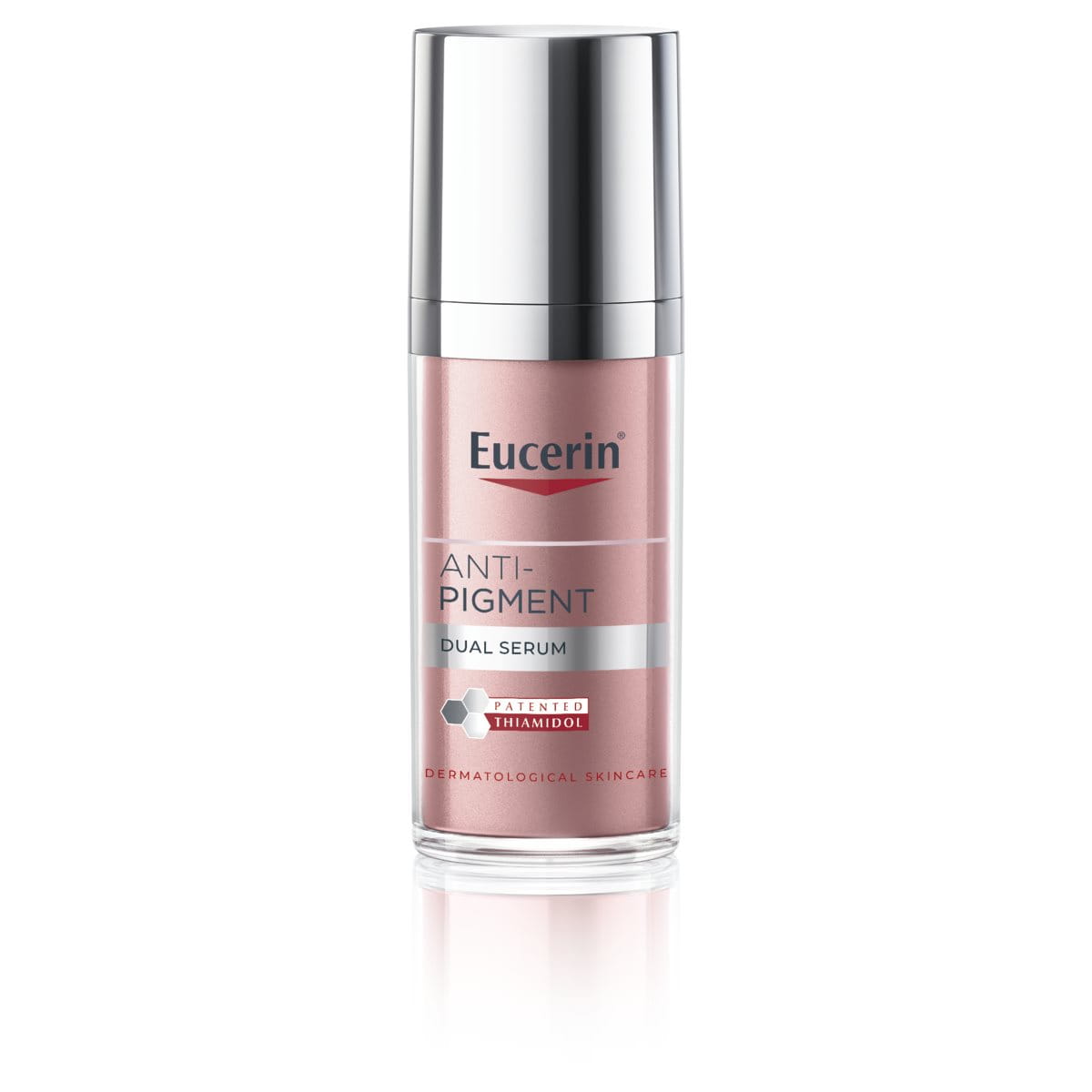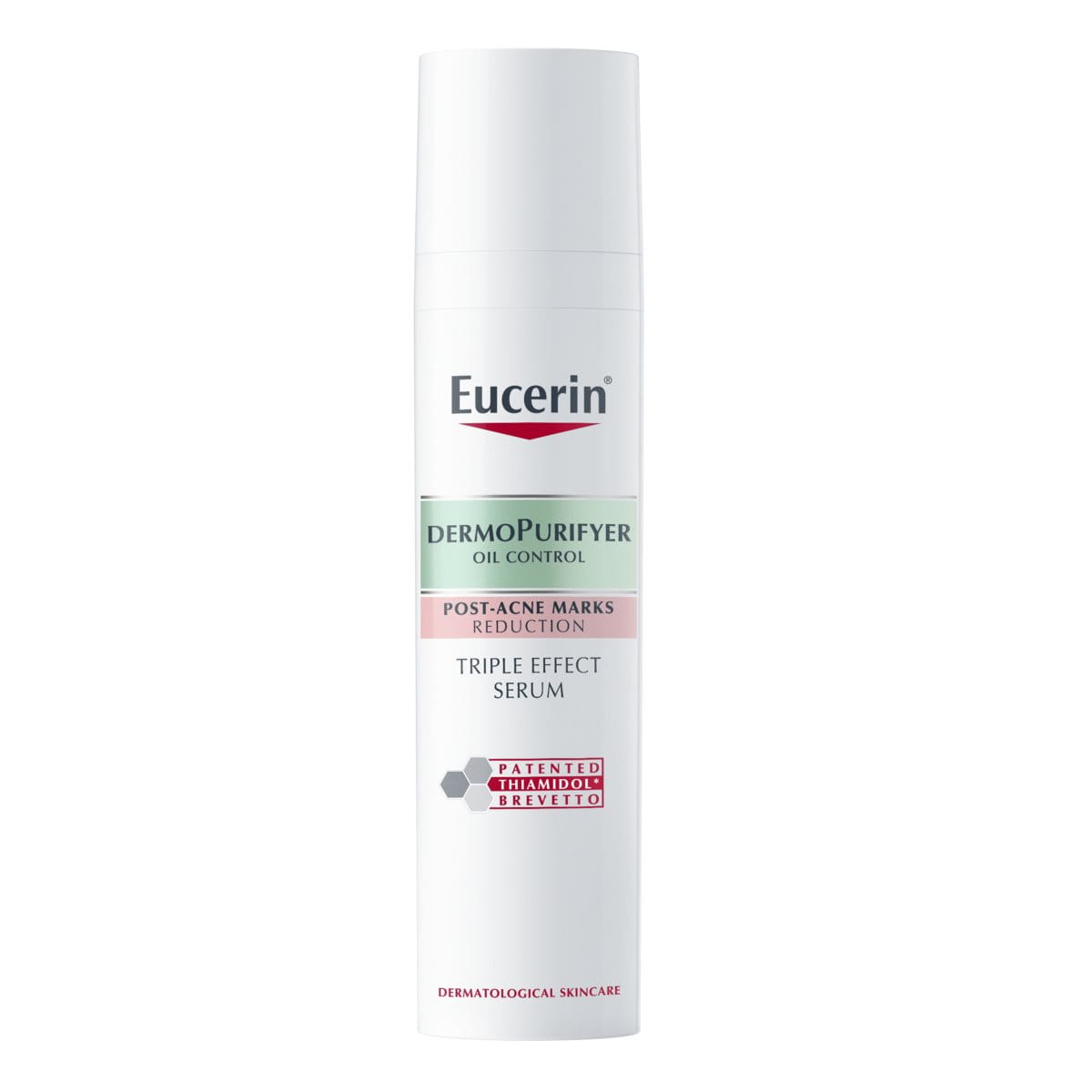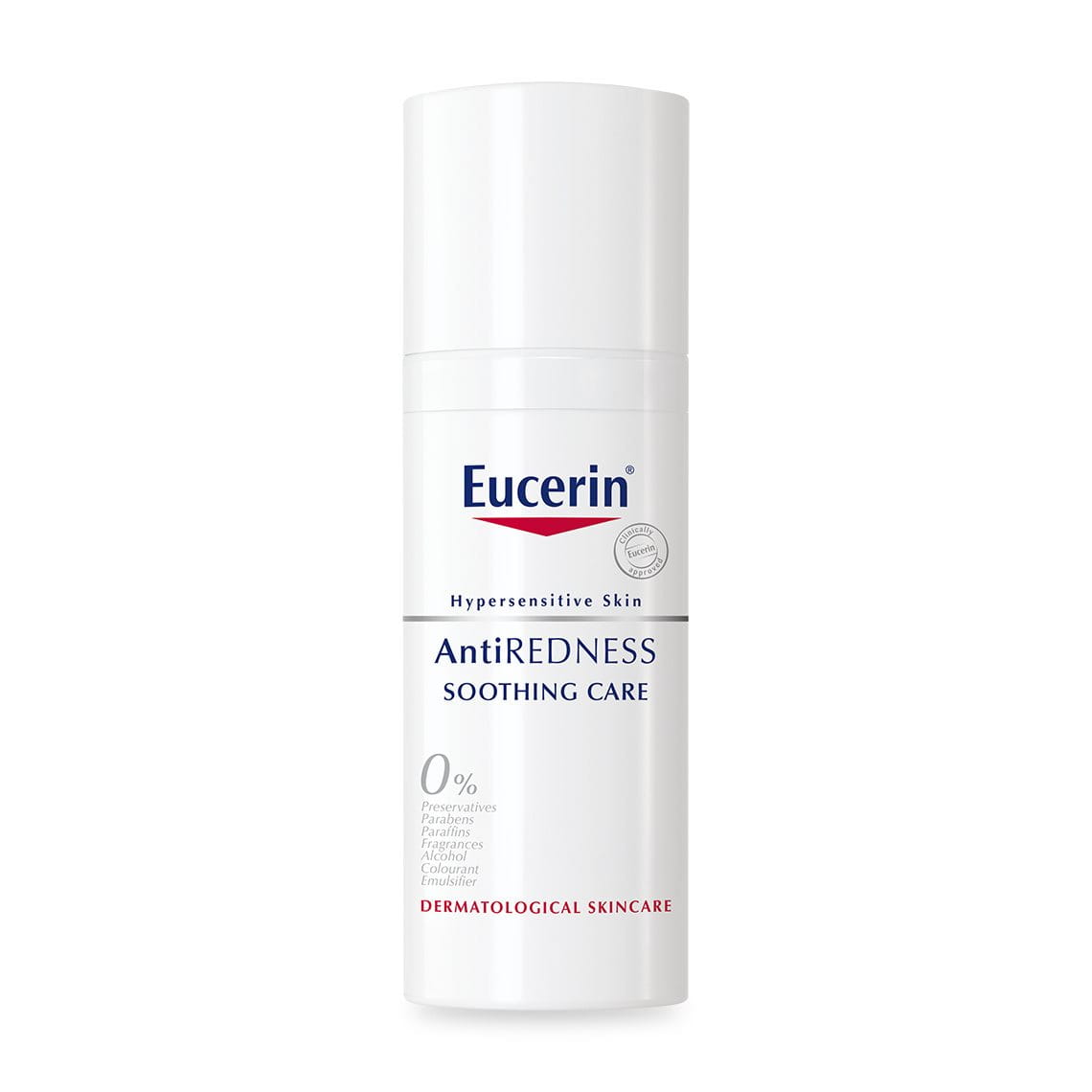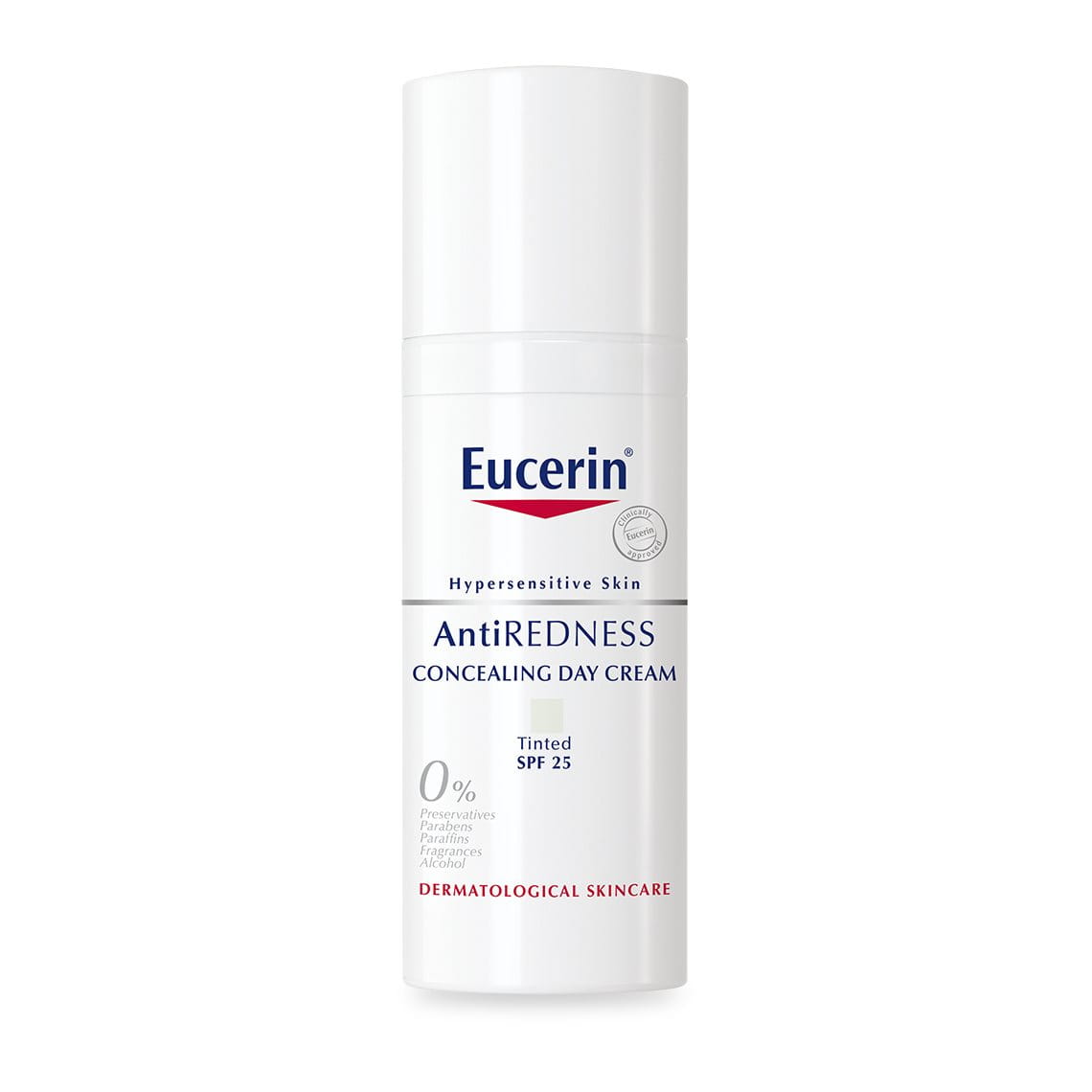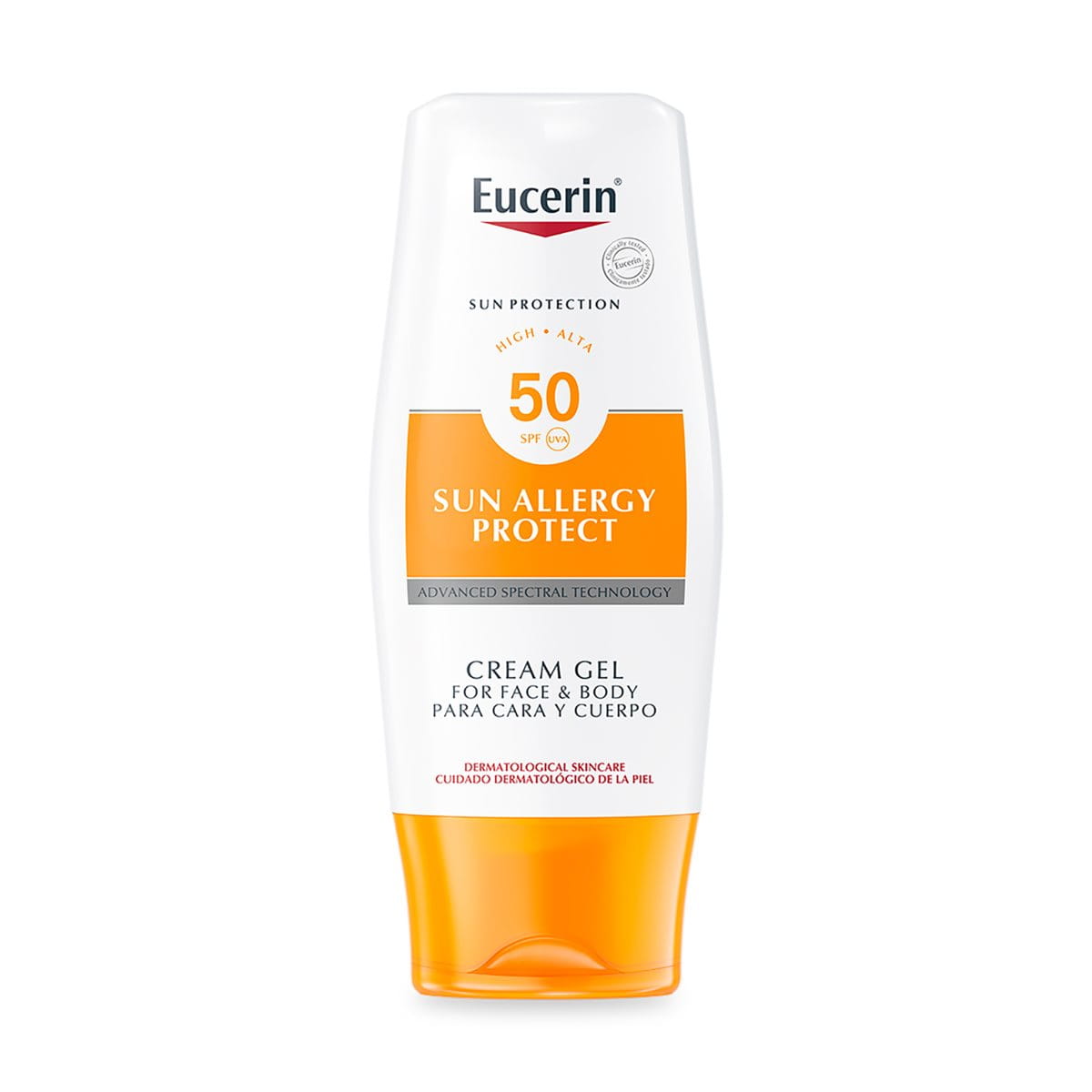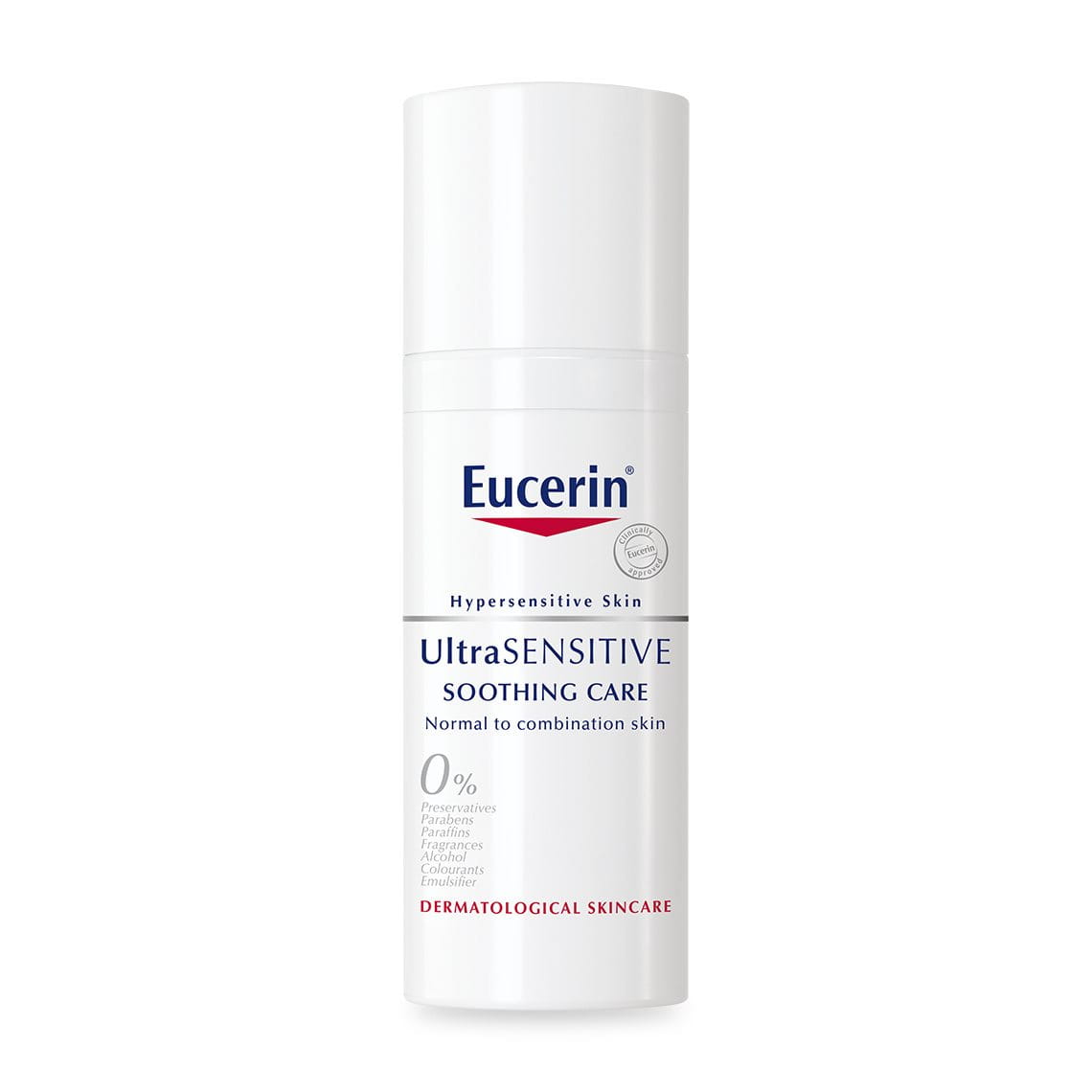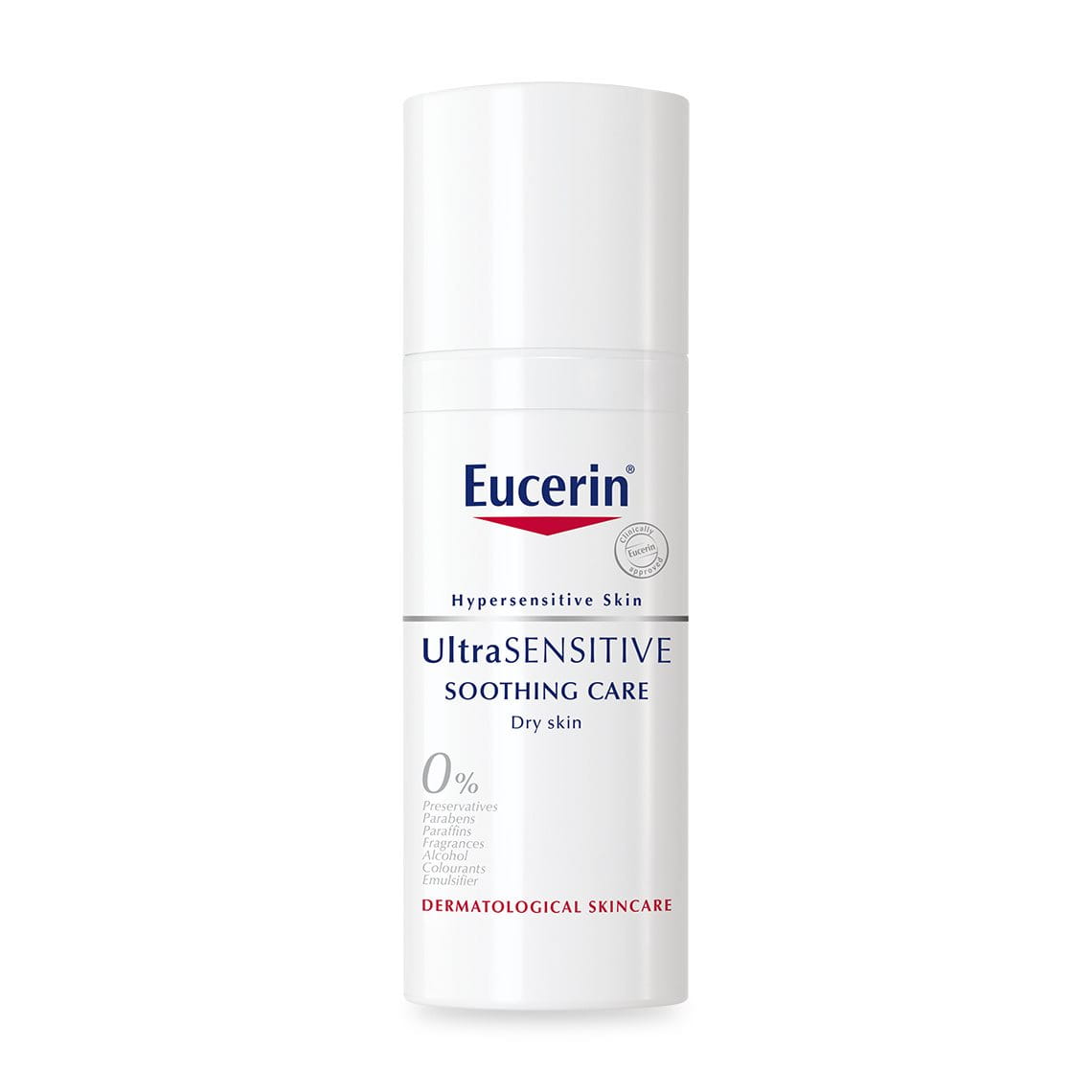Sensitive or Hypersensitive skin is a common, unpleasant condition where skin can show visible symptoms (dry skin, irritation, eczema, pimples, redness, desquamation) or non-visible sensations such as burning, itching or stinging. The visible characteristics tend to appear on the cheeks, T-zone and chin and can come and go, depending on trigger exposure.
What is sensitive skin?
People with sensitive skin tend to experience reactions from everyday irritants that other people might not. These include redness, itching, tightness and dry patches.
Triggers can be present anywhere from chemicals, dyes and fragrances to food and alcohol. Though sometimes described as a skin type, sensitive skin can actually be present in cases of each skin type meaning it can be seen as a separate parameter.
What are the types of sensitive skin and related conditions?
Skin can be sensitive for a variety of reasons. For some people it could be genetic and for others it could be caused by damage over time. This results in different types of sensitive skin and understanding these types are important for choosing the correct treatment and not exasperating the problem.
Rosacea
Rosacea is a chronic inflammatory disease that affects up to 10% of adults. Symptoms include diffuse redness of the cheeks, chin, nose, and forehead, which can be accompanied by couperosis, blemishes, pustules, and, if the ocular area is affected, styes and conjunctivitis. At its worst, sufferers can experience rhinophyma—a thickening of the skin and excess tissue that can appear on the nose, making it look large and bulbous.
Eczema or Dermatitis
Dermatitis is a category of chronic skin conditions characterised by swelling, irritation and itchy skin triggered by various factors depending on the type you experience. It’s genetically determined and caused by an overactive immune system which flares up in response to environmental stressors such as allergens, chemicals and dust.
Allergic reactions
Sensitive skin could be a result of an allergic reaction. Common allergies include dust, hay fever and specific skincare ingredients. Effectively isolating and identifying an allergen can be tricky since we are exposed to so many different potential allergens each day, so it is important to come up with an elimination strategy to methodically work through all possibilities.
Dry skin
Dry skin usually occurs due to a compromised skin barrier, leading to abnormal trans-epidermal water loss. This essentially means the skin struggles to stay adequately hydrated and becomes dry and, in severe cases, cracked. These skin conditions can fall on a scale of severity. This might make it hard to distinguish if you have sensitive or hypersensitive skin and there can be a lot of variation between individuals. Sensitive skin can worsen if not managed correctly so even if it isn’t hypersensitive yet, it is best to treat it with as much care as possible to prevent the condition from worsening.
How does sensitive skin develop into hypersensitive skin?
Sensitive skin can turn into hypersensitive skin if you don’t manage it properly. The process of trying to fix the issue without fully understanding it can often do more harm than good. If you suspect you have a skin sensitivity condition, try to get a diagnosis as soon as possible. This will ensure you are treating the correct problem and not exasperating it further. A good example of this is Rosacea pustules. Many people would see these appear on their skin and assume they are acne. However, they are caused by a sensitivity response, meaning acne solutions like exfoliants would make the problem worse.
What is hypersensitive skin?
Hypersensitive skin is defined as skin that is hyper-reactive to different factors of varying harshness that are well tolerated by normal skin. A more extreme and frequent version of sensitive skin, hypersensitive skin is characterised by unpleasant sensations and visible reactions when sufferers come into contact with usually innocuous internal or external stressors such as extreme temperature, chemicals or UV rays. These sensations, and their intensity, vary from individual to individual and this can make diagnosis difficult.
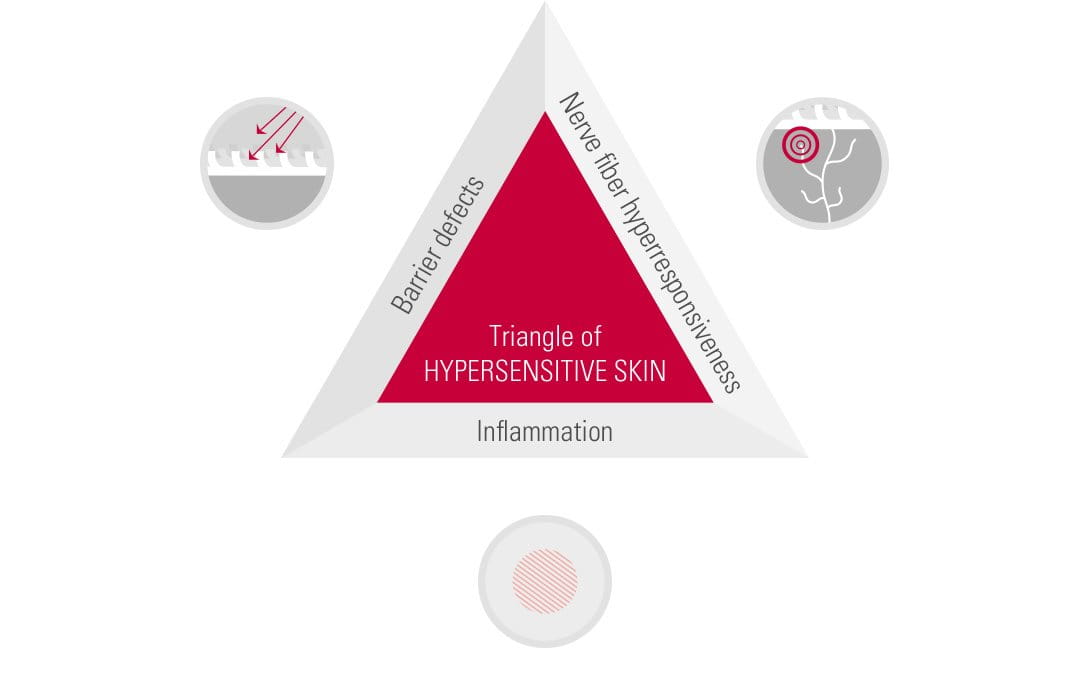
What are the characteristics of hypersensitive skin?
Hypersensitive skin is often characterised by three main signs and symptoms, collectively known as the Hypersensitive Skin Triangle:
Compromised skin barrier
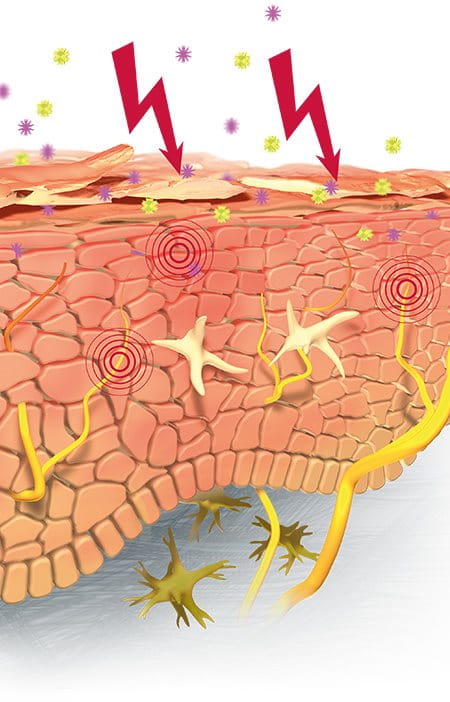
A compromised skin barrier makes sensitive and hypersensitive skin vulnerable to stressors and trans-epidermal water loss.
Very reactive sensory fibres in the epidermis
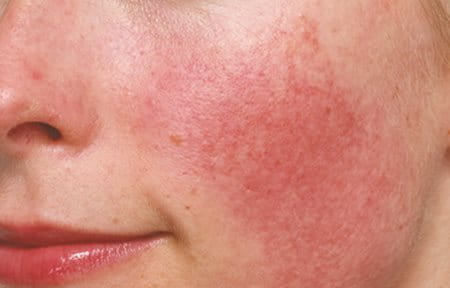
Hyperactive or over-stimulated sensory fibres in the epidermis react faster and much stronger than those in normal skin. These sensory fibres trigger unpleasant skin sensations such as stinging, burning or tightness of the facial skin or scalp. In more serious cases, these non-visible symptoms can be accompanied with dryness, pimples or redness.
Redness (often caused by inflammation)
You might have dry skin or acne, but the skin isn’t considered hypersensitive unless it also feels uncomfortable. Redness can lead to Couperose-prone skin and, ultimately, Rosacea when experienced alongside the sensations, but redness is not exclusive to hypersensitive skin.
What are common causes of sensitive skin?
Reactions in hypersensitive skin can be triggered by environmental, psychological, external and/or mechanical factors.
Environmental factors

Dramatic temperature changes, extreme hot or cold, wind, sun or atmospheric pollution can affect hypersensitive skin. Increasingly bad air pollution, especially in urban environments, has been blamed for the growth of reports of hypersensitive facial skin conditions.
Psychological factors
Anger, intense emotions, and stress can also trigger hypersensitivity, as can hormonal factors such as the menstrual cycle.
External factors
Exposure to spicy foods, alcohol, cleansing products, fragrances, unsuitable detergents, excessively calcareous water, baths, showers and swimming pools are also factors that can affect hypersensitive skin. The rise in allergic reactions in recent years has highlighted the need for 'pure' or '0%' cosmetics and detergents, which contain only a limited number of ingredients.
Mechanical factors
Mechanical factors can influence hypersensitive skin by damaging its already weakened barrier, triggering sensory nerve fibres, and leading to increased irritation and sensitivity.
How to prevent skin sensitivity
Hypersensitive skin can be managed with the right approach. A simple skincare routine for sensitive skin uses minimal ingredients and anti-contamination packaging, to help soothe and balance the skin while preventing hypersensitivity.
- Limit how often you wash or exfoliate your skin, as doing so too frequently can remove natural oils and lead to increased sensitivity.
- Use a gentle, fragrance-free soap when taking shower, and make sure you take short 5 – 10 minutes shower with warm, not boiling hot, water.
- Instead of rubbing your face, gently pat yourself dry after a shower and apply moisturiser right away.
- Avoid using products that contain fragrances, dyes, and preservatives.
- Use the right skincare products for hypersensitive skin to provide quick relief, such as the Eucerin AntiREDNESS and UltraSENSITIVE range.
- Keep a skin diary to track environmental, psychological, and mechanical factors can help identify and avoid triggers
- Avoid known triggers, such as spicy foods and alcohol, can reduce the likelihood of flare-ups.
Eucerin Hypersensitive Skin products use an innovative active ingredient called SymSitive*, which helps make your skin feel comfortable for a long time. SymSitive* reduces sensitivity by targeting the root cause of irritation, providing instant relief. It also boosts your skin’s tolerance and keeps it feeling comfortable.
For redness, Eucerin AntiREDNESS Soothing Care and Eucerin AntiREDNESS Concealing Day Cream Tinted SPF 25 contain Licochalcone A, a natural ingredient that calms irritation and reduces redness.
Sun protection for sensitive skin
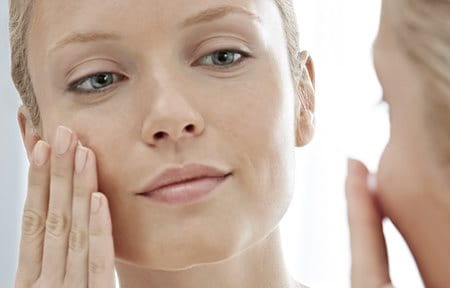
Choose sunscreens with gentle, safe formulas that protect without causing irritation. Eucerin Sun products come in a variety of SPFs, and all are proven to work well for sensitive skin. Eucerin's Sun Allergy Protect SPF 50 is a high-protection option, ideal for sensitive, allergy-prone skin. It provides broad UVA/UVB protection, absorbs quickly, is non-greasy, fragrance-free, and water-resistant, helping to prevent sun allergies and irritation.
Attention
'Hypoallergenic', 'pure' or '0%' formulas mean they contain only a limited number of ingredients and are free from preservatives (including parabens), paraffins, fragrances, alcohol, emulsifiers* and colourants**.
Anti-contamination packaging
To prevent the formulas from impurities and oxidation the Eucerin Hypersensitive Skin ranges use dual-valve anti-contamination packaging. This packaging has sterilising filters in its venting holes, component connections are ultra-welded for tightness and the dispenser has an ultra-light tip seal.
Alternative solutions
As hypersensitive skin is such an individual condition, there is an element of trial and error in involved in finding the right skin care. As part of this quest some sufferers have found relief by applying primrose oil, witch hazel oil, tea tree oil or fish oils to their skin or eating flax, fennel seeds or turmeric. Some also find green tea and chamomile tea helpful. However, there is no medical evidence to support these alternative solutions.
* =reg.tm of Symrise AG, Germany
** Except Eucerin AntiREDNESS Soothing Care and Eucerin AntiREDNESS Concealing Day Cream Tinted SPF 25
Our brand values

We deliver a holistic dermo-cosmetic approach to protect your skin, keep it healthy and radiant.

For over 100 years, we have dedicated ourselves to researching and innovating in the field of skin science. We believe in creating active ingredients and soothing formulas with high tolerability that work to help you live your life better each day.

We work together with leading dermatologist and pharmacist partners around the world to create innovative and effective skincare products they can trust and recommend.
